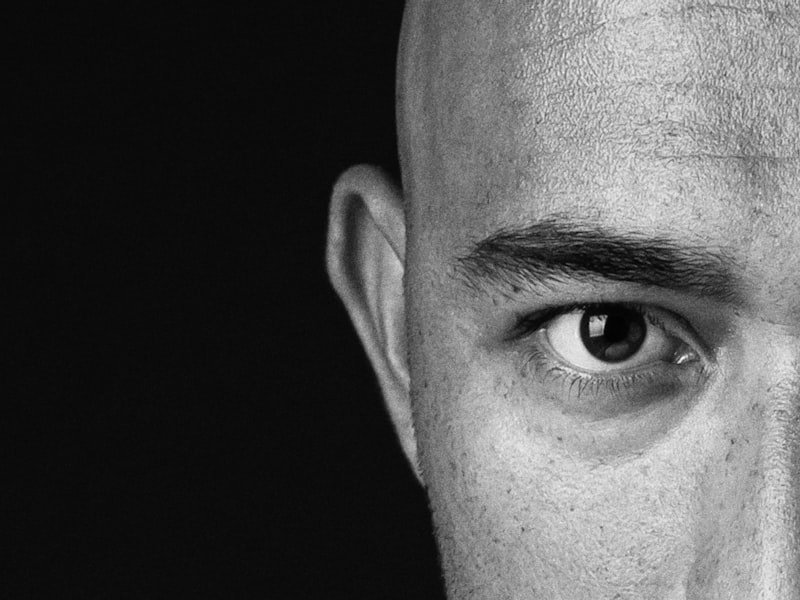The Most Hilarious Complaints We've Been Hearing About Mental Health Assessment

Mental Health Assessments at Mercy Health
A mental health assessment is a set of tests and questions conducted by a psychologist or medical professional. It is a tool to help them assess your symptoms and determine the degree of care you require from outpatient services to inpatient treatment.
It is a good idea to bring a friend or an advocate along to help you, which is possible through your local council or an advocacy service like Rethink.
Screening
A screening mental health assessment is used to ascertain whether a patient functions in a healthy mental and social level. This kind of assessment can also aid in the diagnosis of neurological disorders and diseases. It can be used to test for depression, substance abuse and various other ailments. These tests are typically shorter and cheaper than full professional evaluations provided by mental health professionals.
A screening assessment typically involves a short interview with the person being assessed. Questions are asked about past and present symptoms, as well as when they first started and how long they have been present. The patient could be asked to give details about her family history, or if she has been diagnosed with a different condition. It is also important to discuss the patient's feelings, thoughts and opinions with a healthcare professional.
During the exam, the healthcare provider will ask the patient if she has any specific fears or concerns. The healthcare professional will inquire with the patient about any medications she's taking and how they're functioning. It's usually recommended for the patient to bring a friend or family member along to the interview and to be as transparent as they can.
Following a brief interview the healthcare professional will likely conduct some tests. The tests will differ based on the kind of test that is being conducted. Rating scales are used to aid patients in reducing complicated emotions and feelings. These tests are helpful in determining the severity of a disorder and planning treatment for a disorder.
Other assessment tools include symptom checklists, which are lists of possible symptoms that can be used to determine the presence of a specific disorder. However these tools should be used with caution since they don't take into consideration all the psychological, biological and sociological factors that affect a patient's life.

The analysis of the patient's thought content is another way to assess her emotions and thoughts. This will test her ability to form coherent thoughts and connect seemingly unrelated items. The analysis of thought content is helpful in identifying disorders like hallucinations that are visual tactile, olfactory, or auditory and delusions like the belief of special powers, status, or being targeted by others; obsessive compulsive behaviors and phobias.
mental illness assessment can identify the root of a patient's symptoms, like anxiety or depression. They also aid doctors determine the best treatment for their patient. Mercy's behavioral health specialists can provide an exhaustive and thorough evaluation. They will ask the patient about their current medications, as well as any herbal supplements or other over-the-counter remedies they are taking. They will also ask about any family medical history that may indicate mental health issues.
During the diagnosis phase of the mental health assessment, the physician will conduct a physical exam of the patient to rule out any possible neurological disorders or diseases that could be causing the patient's symptoms. This involves evaluating motor functions, reflexes, sensations, posture and gait. Additionally, the doctor will conduct a neurological exam of the eye movements and visual field to determine if they are normal.
The doctor will also assess the patient's cognitive ability, which includes their ability to think, reason and remember. He or she will look at the patient's appearance and decide whether or not he is dressed appropriate for their age and maintains a high standard of hygiene. The doctor will listen to the patient in order to be able to understand what they are feeling and thinking.
Psychologists may employ a variety of tools and tests to determine a patient's mood and behavior. For instance, they could test for depression and anxiety by asking the patient questions or giving them a short questionnaire. They can also perform an extensive test to assess the levels of certain chemicals in the brain.
A psychiatric examination can include a discussion of the patient's social situation and relationships. It may also include a discussion of the patient's experiences from the past, such as traumatizing events in childhood. It is essential to comprehend the patient's mental and social situation to ensure the most effective care.
Treatment
Everyone goes through tough times However, if you or someone you know has symptoms that aren't typical, it could be time to seek out help. A mental health assessment helps identify the issue and determine the type of treatment that can assist. It is usually performed by a psychiatrist, psychologist, or medical doctor.
During the exam, the healthcare specialist will ask questions directly and observe in a non-biased manner. They will also look at the patient's medical history, including the family history, any previous mental health issues and any current medications the patient is taking. The healthcare provider will also be interested in knowing whether the patient uses herbal remedies or nutritional supplements, as well as prescription medications that are not prescribed. This is because some physical conditions can have similar symptoms to mental disorders, and the healthcare provider needs to rule them out.
The health professional will inquire about the patient's lifestyle as well as their work and social interactions. They will look for signs like a lack of motivation, difficulties in maintaining relationships, and avoidance of situations that can trigger negative emotions. They will also assess whether there are suicidal thoughts or thoughts. They will also inquire about their life and habits. The healthcare professional could also suggest additional physical examinations, such as blood tests or computed tomography scans (CT scans) to rule out physical causes of the symptoms.
The content of thoughts will be assessed through direct questions and studying the topics mentioned during the interview. A thought disorder is a mode of thinking that is abnormal. It could include hallucinations, delusions or obsessions, and compulsions as well as repetitive behaviours.
The healthcare professional will discuss the findings with the patient after the psychiatric assessment. The healthcare professional will then recommend a treatment program. This could be a combination of psychotherapy and medication depending on the diagnosis and the patient's individual requirements. Once the patient feels better and is removed from the clinic. Regular assessments can be beneficial in evaluating the effectiveness of treatment. They can be conducted in various ways, such as asking the patient to complete questionnaires at regular intervals, or by using software such as Quenza to evaluate factors such as mood and cognition.
Follow-up
At the end of each encounter, clinicians need to evaluate the impact of their therapeutic interventions on their clients' lives. The indicators could include whether they have achieved their initial aims for seeking therapy, such as more satisfaction in their lives, or whether they are more resilient in the face of difficulties. Alternatively, clinicians may need to monitor the progress of a patient through an entire treatment pathway like an ongoing series of meditation classes.
For instance, therapists who use Quenza's preloaded "Life Domain Satisfaction" activity can ask clients to assess their satisfaction with 16 aspects of their lives using 10-point scales of rating. This is an enlightening method of measuring progress, since it allows clients to monitor the changes in their wellbeing over time, and provides helpful signposts for assessing improvements to mental health.
The Cultural Formulation Interview (CFI) is another tool that can be used for gathering qualitative data during a mental health assessment. It is designed to give clinicians an accurate picture of a patient's culture, CFI includes supplementary modules that can be used to gather collateral information from caregivers and family members.
The formal dissection of certain cognitive abilities is a reductionistic approach towards the patient. It involves assessing a variety of tasks, including memory, attention, and higher-ordered reasoning capabilities. This should be conducted at the end of the meeting between the doctor and patient to encourage cooperation and avoid resistance.
After patients have been released from psychiatric centers, a patient evaluation questionnaire can be used to assess their progress. These questionnaires enable to compare the responses of the patient and those of other patients in the same clinic. They also serve as a benchmark of improvement that can be tracked over time.
